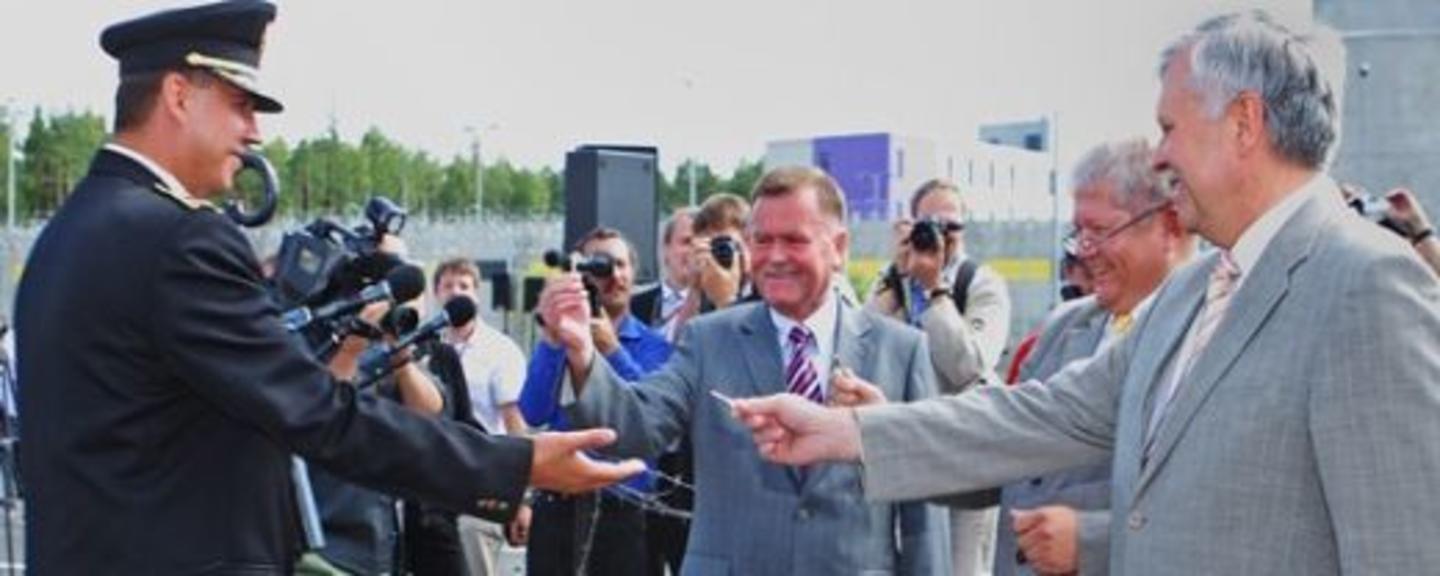Speaking at the prison's opening ceremony in July 2008, Estonia's Minister of Justice, Rein Lang, said that Viru prison sets an excellent example for other prisons. Lang commended the prison's work towards reintegrating former convicts into Estonian society.
Over the coming two years, young inmates up to the age of 26 will be enrolled in basic and special rehabilitation programmes to prepare them for school or the labour market after ended imprisonment. Additionally, all ranks of prison staff will be educated in correctional training to ensure that qualified personnel are supervising the inmates' schooling. Norwegian experts from the Norwegian Ministry of Justice and the Police, Correctional Services, will take part in the development of training strategies, and a study visit for Prison Chief Inspectors to Norway is foreseen.
With 14 buildings covering a total area of over 160 000 m2, Viru prison is able to house more than 1000 inmates.
Successful Schengen cooperation
By mid September 2008, 36 Schengen projects amounting to close to €100 million in grants are up and running in the Baltic states, the Czech Republic, Malta and Poland. The Baltic states Estonia, Latvia and Lithuania have particularly targeted the quality of penal enforcement in prisons under the Schengen sector, through providing new and improved rehabilitation programmes to inmates and training for staff.
In neighbouring Latvia, the project portfolio includes cooperation between two prisons in the Zemgale region and the Department of Education under the County Governor in Hordaland. The majority of the inmates in Jelgava and Jakabpils prisons are poorly educated, Russian-speaking Latvians, and new resocialisation programmes focusing on language skills and basic education will give the released convicts a better chance to reintegrate into society. In addition to providing expertise on resocialisation, the Norwegian partner will assist in organising a study visit for Latvian police to Norway, which will include site visits to Norwegian correctional facilities.
Poland, the largest recipient of the Norway Grants, focuses on strengthening their police and customs units with the Norwegian Schengen support. By investing in state of the art equipment and technology, the country is preparing to better face the challenges related to the protection of the EU external border and the fight against organised crime. The Norwegian police are actively involved in Polish Schengen projects, and the four year cooperation under the Norway Grants has strengthened the possibilities of direct operational cooperation between the two police forces.
